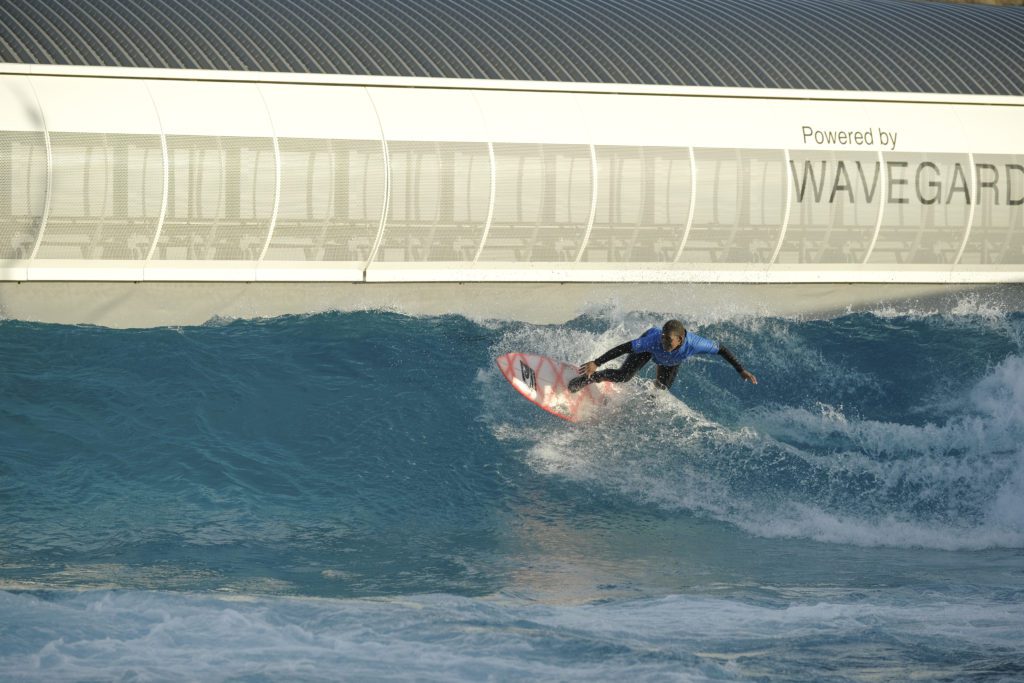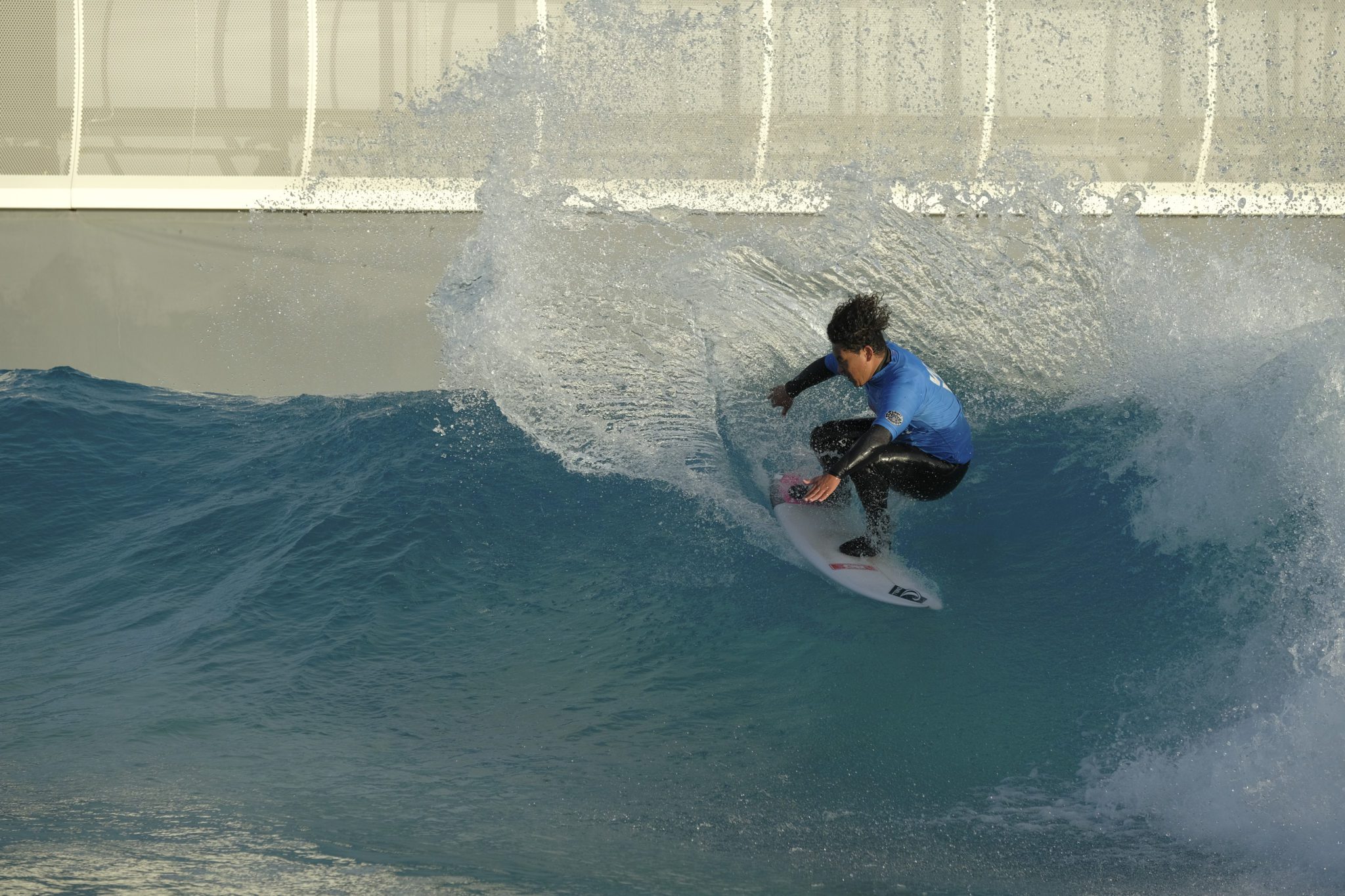For those of us lucky enough to have a roof over our head, a bed to sleep in, a loo and shower and other amenities, it is difficult to imagine living from day-to-day with no address, no shelter. You lose identity, a sense of who you are, or maybe you never gain identity. You are at the whim of governments and bullies, drug dealers and pimps. There is no ‘downward spiral’ because you already hit rock bottom. It’s into this context that Surfers Not Street Children have been pioneers.
Founded in 1998 by surfer and activist Tom Hewitt MBE, Surfers Not Street Children follows the central notion of creating an identity – one that brings both passion and pride – to those who have been dis-identified or dis-enfranchised, given ‘bucket term’ negative badges, such as ‘street children’. After working on his own for a couple of years in downtown Durban, Tom hooked up with surfer and coach Sandile ‘Cyril’ Mqadi to help homeless children on the streets to find a focus and sense of hope – an identity, once again – through surfing. As their community grew and these children gained confidence so they became activists in their own right, notably challenging the governmental authority’s own abusive stance towards the plight of the homeless, often just sweeping them under the carpet. A notable extension to the programme came with the arrival of S’lindile Ngema in 2017 as head social worker, developing a successful ‘Girls Surf Too’ empowerment initiative, specifically aimed at girls at risk. A year later, with the help of talented Mozambican pro surfer Sung Min ‘Mini’ Cho, Tofo Surf Club started its first programme to help vulnerable children through surfing and social and psychological support along the magical coastline of Mozambique.
Recently there was a wonderful coming together of the Surfers Not Street Children movement here in the UK. Mini travelled with Sne Makhubu (who works at Surfers Not Street Children in South Africa) to set ablaze some projects with Tom and his son Siyanda (who is one of our Wave ambassadors) around British waters. They started in London with a reception to discuss work and future projects for key investors in the charity, then hot-footed to the South West where Mini wiped the local opposition, winning the Open Men’s division at the Croyde Surf Club contest in November in big, heavy surf. He is surely the first Mozambican to win a surf contest in Europe. Sadly, and this is something the UK surf community is grappling with, there are relatively few black surfers on this island. This is a paradox, as the crew will have seen from their visits to London and Bristol, vibrant cities of multicultural mix and ethnic diversity.
Next stop was The Wave, where Mini celebrated “super fun incredible waves and definitely a day to remember. Smiles from ear to ear.” He was on fire, surfing at lightning speed with raw energy and flair. “As the first Mozambican to surf The Wave,” said Mini, “I really wanted to showcase a little bit of Mozambican power and flow that we grow up with, from learning to surf on the long fast point breaks of the Indian Ocean.” Mini turned heads, as did Sne, who was “super stoked to have experienced it, especially the Expert Turns setting” where she unleashed powerful arcing bottom-to-tup-turn combinations across the azure walls of water. She should be proud, as the first black woman to surf the Expert settings. Their whirlwind tour continued to the chilly reaches of north Scotland, where they surfed epic Thurso with Scottish champion Mark Boyd. The shared waves of joy, cultural exchange and community bridge building was a reminder of the positive power of surfing for social good.
Surfers Not Street Children is not so much an organisation as a way of being, a lifestyle, that brings pride and satisfaction, artistry and commitment, back into people’s lives. Technically, the project targets children at risk and street children in South Africa, and children at risk in Mozambique. Its advocacy and support office however is now based with Tom and Siyanda in North Devon. And the catalyst for change is surfing. This follows a global boom in surfing shifting from a hobby, sport and lifestyle to affording a medium for therapy, opportunity and community change. Surfing has outgrown its original limits where it now promotes personal physical and psychological wellbeing, but more, promotes agendas for social justice and challenging inequities and inequalities. Surfing now embraces inclusivity. Surfing, and a network of support built around it, provides the level field that many, many people around the world simply cannot access due to poverty and conflict. Surfing starts with addressing an unacceptable poverty of spirit that social circumstance has stripped from many kids, to offer the gift of hope. It is a wonderful social alchemy, turning leaden lives into golden opportunities.
Yet, for many, surfing on its own will not turn lives around. It has to be wrapped in care and mentorship and embody metaphors of hope and sustained change. Children have to be valued and given consistency in attention and support. This work arises from a network of carers and social workers who can identify children at risk, and then a team of surf coaches, lifeguards and administrators who keep the organisation afloat. Successes are transformative – learning how to interact socially through surfing, kids no longer at risk get satisfying jobs. Some stay in the surf culture, developing as coaches and lifeguards. The talented surfers may even go on to become professionals. There is a further benefit: the organisation has a public education policy, advocating for positive perception and treatment of street children and youth, and those who have drifted into dead-end worlds.
A key message from Surfers Not Street Children is that the authorities cannot sweep homelessness and poverty under the carpet, such as ‘cleaning’ the streets where major international events bring focus to an area. Since the late 18th century, major cities have periodically ‘sanitised’ the streets of the homeless, prostitutes, drug dealers, and the ‘mad’. Paris’ ‘insane asylums’ were once colonies to keep lepers off the streets, and then they stood empty when leprosy largely disappeared from Europe, only to be re-used as convenient ‘prisons’ for the ‘bad’ and the ‘mad’. Unfortunately, the motive was not to help these distressed and underprivileged people, but to keep them locked away, out of sight of the privileged. This dreadful habit continues today. Surfers Not Street Children continue to tackle this head on and deserve our support. They are a cutting-edge charity performing groundbreaking work, fuelled by public support and donations, but above all, a respect for the healing power of water.

